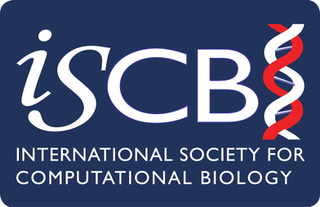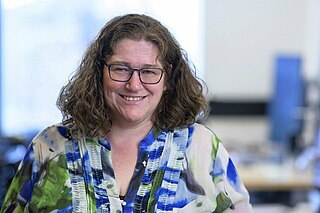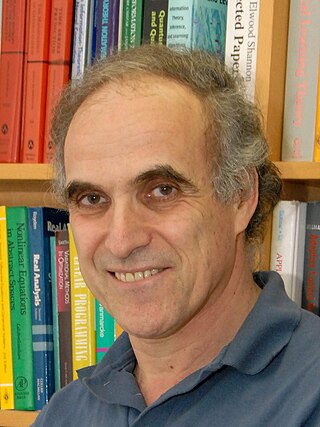
Intelligent Systems for Molecular Biology (ISMB) is an annual academic conference on the subjects of bioinformatics and computational biology organised by the International Society for Computational Biology (ISCB). The principal focus of the conference is on the development and application of advanced computational methods for biological problems. The conference has been held every year since 1993 and has grown to become one of the largest and most prestigious meetings in these fields, hosting over 2,000 delegates in 2004. From the first meeting, ISMB has been held in locations worldwide; since 2007, meetings have been located in Europe and North America in alternating years. Since 2004, European meetings have been held jointly with the European Conference on Computational Biology (ECCB).

The International Society for Computational Biology (ISCB) is a scholarly society for researchers in computational biology and bioinformatics. The society was founded in 1997 to provide a stable financial home for the Intelligent Systems for Molecular Biology (ISMB) conference and has grown to become a larger society working towards advancing understanding of living systems through computation and for communicating scientific advances worldwide.

The Israel Institute for Advanced Studies is a research institute in Jerusalem, Israel, devoted to academic research in physics, mathematics, the life sciences, economics, and comparative religion. It is a self-governing body, both in its administrative function as well as its academic pursuits. It is one of the nine members of the symposium Some Institutes for Advanced Study (SIAS).

Aviv Regev is a computational biologist and systems biologist and Executive Vice President and Head of Genentech Research and Early Development in Genentech/Roche. She is a core member at the Broad Institute of MIT and Harvard and professor at the Department of Biology of the Massachusetts Institute of Technology. Regev is a pioneer of single cell genomics and of computational and systems biology of gene regulatory circuits. She founded and leads the Human Cell Atlas project, together with Sarah Teichmann.
Nir Friedman is an Israeli Professor of Computer Science and Biology at the Hebrew University of Jerusalem.

The European Conference on Computational Biology (ECCB) is a scientific meeting on the subjects of bioinformatics and computational biology. It covers a wide spectrum of disciplines, including bioinformatics, computational biology, genomics, computational structural biology, and systems biology. ECCB is organized annually in different European cities. Since 2007, the conference has been held jointly with Intelligent Systems for Molecular Biology (ISMB) every second year. The conference also hosts the European ISCB Student Council Symposium. The proceedings of the conference are published by the journal Bioinformatics.

Ruth Nussinov is an Israeli-American biologist born in Rehovot who works as a Professor in the Department of Human Genetics, School of Medicine at Tel Aviv University and is the Senior Principal Scientist and Principal Investigator at the National Cancer Institute, National Institutes of Health. Nussinov is also the Editor in Chief of the Current Opinion in Structural Biology and formerly of the journal PLOS Computational Biology.

David Sankoff is a Canadian mathematician, bioinformatician, computer scientist and linguist. He holds the Canada Research Chair in Mathematical Genomics in the Mathematics and Statistics Department at the University of Ottawa, and is cross-appointed to the Biology Department and the School of Information Technology and Engineering. He was founding editor of the scientific journal Language Variation and Change (Cambridge) and serves on the editorial boards of a number of bioinformatics, computational biology and linguistics journals. Sankoff is best known for his pioneering contributions in computational linguistics and computational genomics. He is considered to be one of the founders of bioinformatics. In particular, he had a key role in introducing dynamic programming for sequence alignment and other problems in computational biology. In Pavel Pevzner's words, "[ Michael Waterman ] and David Sankoff are responsible for transforming bioinformatics from a ‘stamp collection' of ill-defined problems into a rigorous discipline with important biological applications."

Ron Shamir is an Israeli professor of computer science known for his work in graph theory and in computational biology. He holds the Raymond and Beverly Sackler Chair in Bioinformatics, and is the founder and former head of the Edmond J. Safra Center for Bioinformatics at Tel Aviv University.

Gary Stormo is an American geneticist and currently Joseph Erlanger Professor in the Department of Genetics and the Center for Genome Sciences and Systems Biology at Washington University School of Medicine in St Louis. He is considered one of the pioneers of bioinformatics and genomics. His research combines experimental and computational approaches in order to identify and predict regulatory sequences in DNA and RNA, and their contributions to the regulatory networks that control gene expression.

Dana Pe'er, Chair and Professor in Computational and Systems Biology Program at Sloan Kettering Institute is a researcher in computational systems biology. A Howard Hughes Medical Institute (HHMI) Investigator since 2021, she was previously a professor at Columbia Department of Biological Sciences. Pe'er's research focuses on understanding the organization, function and evolution of molecular networks, particularly how genetic variations alter the regulatory network and how these genetic variations can cause cancer.

Ziv Bar-Joseph is an Israeli computational biologist and Professor in the Computational Biology Department and the Machine Learning Department at the Carnegie Mellon School of Computer Science.

Naftali "Tali" Tishby was a professor of computer science and computational neuroscientist at the Hebrew University of Jerusalem.

Lior Samuel Pachter is a computational biologist. He works at the California Institute of Technology, where he is the Bren Professor of Computational Biology. He has widely varied research interests including genomics, combinatorics, computational geometry, machine learning, scientific computing, and statistics.

Janet Kelso is a South African computational biologist and Group leader of the Minerva Research Group for Bioinformatics at the Max Planck Institute for Evolutionary Anthropology. She is best known for her work comparing DNA from previous humans with those of the present.

Hanah Margalit is a Professor in the faculty of medicine at the Hebrew University of Jerusalem. Her research combines bioinformatics, computational biology and systems biology, specifically in the fields of gene regulation in bacteria and eukaryotes.
Laxmi Parida is an IBM Master Inventor and group leader in computational genomics at the Thomas J. Watson Research Center and Courant Institute of Mathematical Sciences in New York.
Rita Casadio is an Adjunct Professor of Biochemistry/Biophysics in the Department of Pharmacy and Biotechnology at the University of Bologna.
Zhiping Weng is the Li Weibo Professor of biomedical research and chair of the program in integrative biology and bioinformatics at the University of Massachusetts Medical School. She was awarded Fellowship of the International Society for Computational Biology (ISCB) in 2020 for outstanding contributions to computational biology and bioinformatics.
Hagit Shatkay was an Israeli-American computer scientist, known for her contributions to computational biology, medical informatics, bioinformatics, and machine learning. She was a professor in the department of computer and information sciences at the University of Delaware. Shatkay was a senior member and served on the board of directors of the International Society for Computational Biology.















